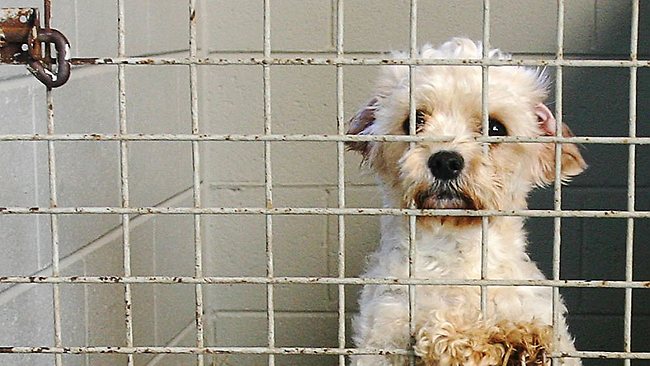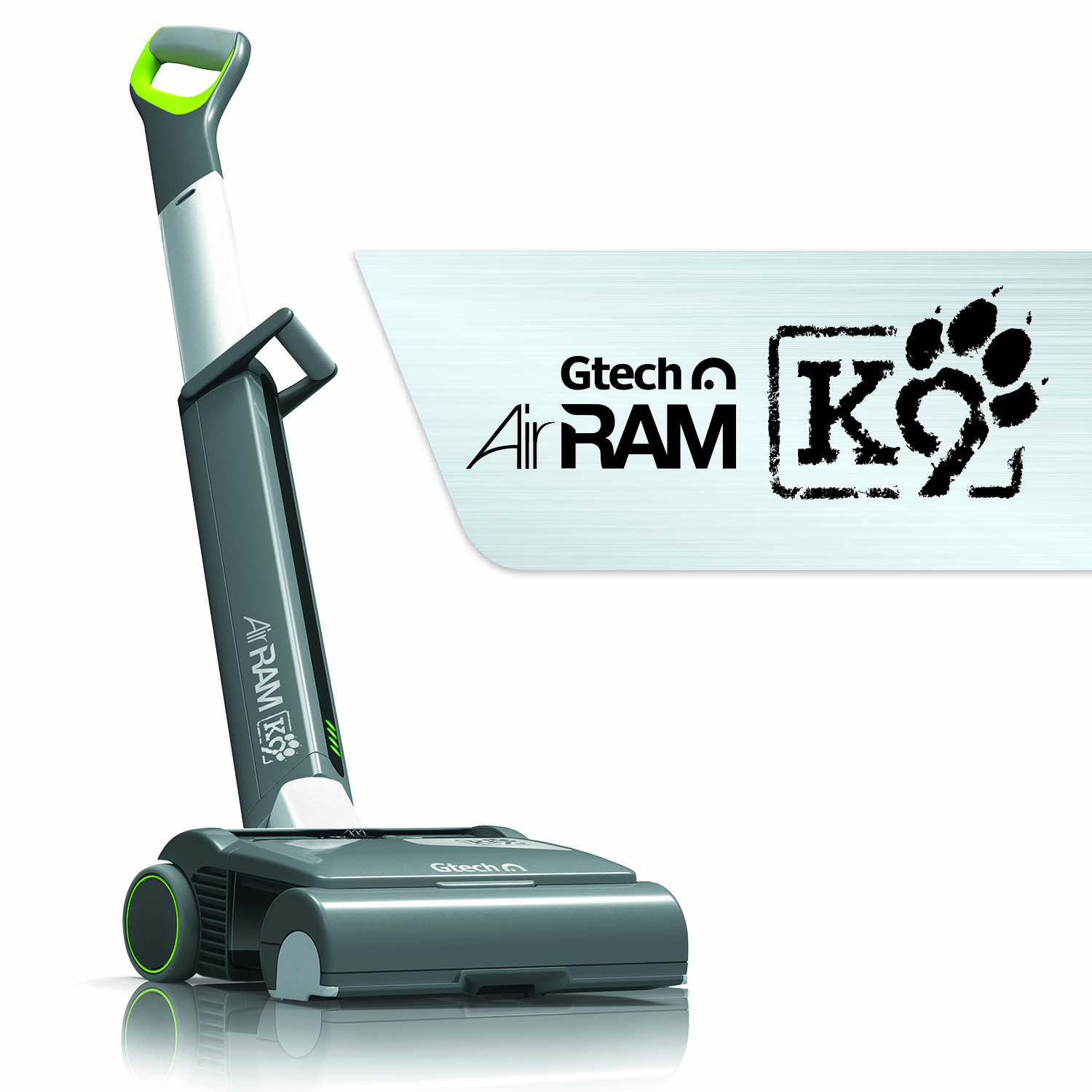Did you know, The Kennel Club have cashed the cheques and endorsed the registrations from high volume breeders (more than 10 litters per year) – the sort of breeders you and I may refer to as puppy farmers? Why does it matter? Well, The Kennel Club, you see, are keen to bring your attention to the plight of puppy farmed dogs and the horrors those pups are subjected to by the commercial dog dealers who produce them.
They’re also keen to tell you that the solution lies in the Kennel Club’s very own Assured Breeder Scheme (convenient, eh?). Tell me, please, in what other walk of life do you get to take (and bank) the money of the very people you are campaigning against and NOT be called a hypocrite for it?
Puppy farming in the UK is an horrendous, ugly trade that has been left completely open for the unscrupulous to exploit and profit from for years and years and years. It’s as rife now as it’s ever been.

Puppy farmers breed dogs with the sole aim of lining their pockets. They don’t breed dogs with the sole aim of improving their breed and producing healthy, functional dogs – which should, I’m sure most right minded people would agree, be the only good reason to ever breed a single litter of dogs.
Puppy farmers have been registering their dogs with the Kennel Club. The Kennel Club knows this.
Kennel Club registration, you see, adds ‘value’ and can raise the price a breeder may charge for their stock. Very few would argue that point. If it were untrue, Kennel Club registrations would hardly be sought be any breeder. It also leads the public in to thinking they are buying quality. That’s an error. The Kennel Club won’t deny that. A piece of paper from the Kennel Club guarantees nothing other than the fact the breeder has filled some forms in and sent the Kennel Club some money.
The puppy farmer wants Kennel Club paperwork in order to present a credible façade or, believe you me, they would NOT be spending the extra money on doing it – profit margins are crucial to the commercial dog producers and dealers. Some puppy farmers don’t bother with Kennel Club registrations and others do. It is, however, a fact that what you and I would describe as a puppy farmer do indeed get Kennel Club endorsed paperwork when selling their puppies.
The Kennel Club has acknowledged that high volume breeders use its registry. Take a look at the minutes from a previous Kennel Club meeting, held at a time when the Kennel Club was preaching about puppy farm problems at the Assured breeding scheme was operating under a different ‘brand name’:
“Dr Sampson advised that Bill Lambert, the Accredited (now Assured – ed) Breeder Scheme advisor, does inspect and completes around 50 visits per year. All breeders (mostly who own multiple breeds) who breed more than 10 litters per year have been visited and some removed from the list.”
The above comes from a breed council meeting. Re-read it if you like.
All breeders – mostly who own multiple breeds – who breed more than 10 litters per year.
Let’s give the quote some context. The above response is cited in the minutes from the meeting in relation to the following:
“The question was raised concerning checks on breeders premises and whether any Accredited Breeders had been taken off the list for non compliance.”
Now, this is a nice hypothetical for you: If you heard about a breeder producing fewer than 10 litters per year, let’s say, oh I don’t know, maybe nine litters? Who also owned ‘multiple breeds’ – what would you think they might be labelled as? A ‘high volume’ dog breeder? A puppy farmer perhaps?
The Kennel Club operates different registries. From their own website:
The Kennel Club is dedicated to canine wellbeing and registers over 250,000 pedigree dogs every year and many crossbreeds too. This knowledge helps to maintain the integrity and health of dogs. (Source)
Let’s move on though because I have another hypothetical question for you.
You run a dog breed registry.
You don’t like puppy farmers. Or, let’s call them ‘high volume dog breeders’. You’re so aghast at puppy farming, you’ll issue statements and declare how much suffering such breeders/producers/farmers cause for the health and well-being of dogs.
You don’t want these high volume dog breeders/puppy farmers to sully the name and reputation of your breed registry.
How do you prevent them from doing this? There’s a few options:
A) You impose limits on individual breeders, dictating that no more than 5 litters may be registered from the same breeder and/or premises in any given year.
B) You also insist that you will not accept a single registration without a veterinary certificate validating the health and condition of the parentage along with appropriate breed health screening paperwork. In short, you insist you will never register a single dog unless both parents have taken (and passed) the appropriate health screening relevant to that breed.
or
C) You don’t do any of that, but set up a SEPARATE scheme(s) so you can still continue to take registrations from those high volume breeders who don’t health screen their stock…. but can act like you HAVE made a leap of progress by telling people to use your ‘Assured’ breeders scheme instead?
We have an Assured breeder scheme, we have a breed registry – one contains puppy farmers and plenty of breeders that don’t adhere to basic health screening standards and one contains breeders who might be producing 9 litters or more per year but who fall under the category of being ‘Assured’. Both breeders can register their puppies with the Kennel Club. Both get Kennel Club registration paperwork and their registrations are endorsed with the Kennel Club seal of approval and, ultimately, the Kennel Club banks the cheques from both.
So, a simple question:
If you had that kind of a set up and you really wanted to no longer allow a single puppy farmer to register their puppies with you and sully your name, cause damage by association to the very good breeders on your registry and, as a result, profit from the suffering of commercially bred dogs – why wouldn’t you make this simple move:
Completely close the free-for-all registry that you know and admit is used by high volume dog breeders and only operate the Assured breeder scheme?
Seriously. Why would you not do that?
Yes, there’s a lot of money in that breed registry. More money, in fact, than pours in to the Assured breeder scheme. But if YOU were going to stand on a soap box and lecture people about the horrors of puppy farming, wouldn’t you try to make absolutely sure you weren’t still cashing the cheques from some of the very people whom you are warning the public about?
Wouldn’t you feel a bit ‘funny’ wagging your finger at the public preaching about puppy farmers when you’ve got some seriously high volume breeders using your own registry and sending their cash your way?
The Kennel Club previously issued a press release in support of its puppy awareness push that stated:
“The Kennel Club and Thepet.net co-founders, TV vet Marc Abraham and social media guru Andrew Seel, want people to know the truth about where badly-bred puppies come from and help them choose a happy and healthy puppy bred by a reputable breeder, rather than a sick or diseased farmed one.
Kennel Club Veterinary Advisor and TV vet, Marc Abraham, said: “I am treating more and more puppies that have come from puppy farms than ever before.
“Puppy buyers often don’t know how to spot the signs of an irresponsible breeder and so continue to unwittingly line the puppy farmers’ pockets, fueling this cruel trade.
“It is imperative that prospective puppy buyers buy from a Kennel Club Assured Breeder and that they sign the Kennel Club’s petition to get the principles and standards of this Scheme made mandatory for all breeders. These breeders love and care for their puppies, agree to follow certain standards and agree to allow a Kennel Club inspector access to their premises. Here are my top tips for choosing a puppy:
1. For a pedigree puppy always contact the Kennel Club first for their list of reliable and reputable Kennel Club Assured Breeders.
2. Ask to see the puppy’s mother, who should always be with the pups.
3. Always see the puppy in its breeding environment and ask to look at the kenneling conditions, particularly if they were not raised within the breeder’s house. If you suspect the conditions are not right, then do not buy the puppy.
4. Be suspicious of any breeder selling more than one or at most two breeds.
5. Be prepared to be put on a waiting list – a healthy puppy is well-worth waiting for.
6. Ask if you can return the puppy if things don’t work out. Responsible breeders will always say yes.
7. Never buy a puppy because you feel like you’re rescuing it. You’ll only be making space available for another poorly pup to fill.
8. Consider alternatives to buying a pedigree puppy like getting a rescue dog or pup, and remember that every breed of dog has its own breed rescue society.”People can sign the Kennel Club’s petition, which asks the government to enforce a mandatory set of standards for all breeders, based on those already followed by Kennel Club Assured Breeders and that put the puppies’ health and welfare first and foremost.”
There’s some very good advice there. No doubt. Sound, well meaning guidance.
But let’s dig, shall we? Let’s see if the Kennel Club can live up to those standards?
“Be suspicious of any breeder selling more than one or at most two breeds.”
Really? OK. I’ll be suspicious.
30 seconds.
30 seconds is all it took me to find Kennel Club Assured breeders who breed more than two breeds. Seriously, I found this breeder in less than a minute I did a quick search on the Kennel Club website for Assured Breeders and within just a few clicks I located Assured breeders who bred more than two different breeds.
Now, and this is important, simply breeding more than one breed doesn’t make you a puppy farmer. It doesn’t make you a bad breeder and it casts absolutely no aspersions whatsoever on the credibility of that breeder. One breeder with several breeds could easily be a superior supplier of dogs than a person with a single breed who knocks out litter after litter. That’s not the point though, is it?
So, I’m confused.
I should be “suspicious” of these (Assured) breeders yet….
“It is imperative that prospective puppy buyers buy from a Kennel Club Assured Breeder”
I must reiterate, it took me less than 30 seconds to find Kennel Club Assured breeders who breed more than two breeds. I can find more but you already catch my drift, yes?
As stated, I have absolutely no qualms whatsoever in accepting that a quality breeder can happen to breed more than two different breeds and a horrendous breeder may produce just one litter in their entire lives. The point is that there is confusion, muddied communication/advice and, ultimately, rampant hypocrisy at play.
How can we be expected to listen to a lecture on the horrors of puppy farming when it is coming from an organisation that accepts the cheques of the very people it is seeking to warn us about?
Most right minded people want puppy farming to become a thing of the past. I am absolutely certain that the Kennel Club would like it that way too. But the reality is, the Kennel Club is running a two tiered system which means they ARE enabling puppy farmers to operate under a veil of implied credibility. If you cash the cheque yet have the means to set the standard rather than take a ‘do as we say, not as we do’ approach, then some questions need to be asked.
But let’s remember this. Let’s focus on it. Let’s draw attention to it. Let’s ask it, out loud:
If the Kennel Club believes in its Assured Breeder Scheme so much. If the Kennel Club believes ALL breeders should comply to the standards of the Assured Breeder Scheme, then why don’t they simply do away with their flawed registry and ONLY operate the Assured Breeder Scheme?
If the Kennel Club believes its Assured breeder scheme is the way for the public to get a better standard of breeding, quite simply, why don’t they impose those rules across its entire breed registration operation?
Surely if they want to be taken seriously on an issue like puppy farming and their commitment to eradicating sub standard breeding practices, they could take a giant step toward that goal by NOT allowing those very breeders who they publicly condemn to register their puppies with the Kennel Club and tacitly give those breeders the credibility they so clearly crave?
I’d like to make it clear. There are good, brilliant even, breeders who care deeply about the health and welfare of the dogs they produce. They care deeply about health testing, about who they sell a dog to and about the plight of dogs in general. Those breeders, surely, can not be happy to be associated with the bad breeders who operate under the same banner, the cloak of Kennel Club implied credibility. Those breeders must be as angry as I am, as you are?
Let’s wind the clock back when Caroline Kisko of the Kennel Club informed Dog World newspaper that they (The KC) would not insist on operating the standards of the Assured Breeder Scheme on a wholesale basis across all of the breeders who register puppies with the Kennel Club unless it applied to ‘all dogs’.
The question was put to Ms Kisko that all breeding dogs be subject to compulsory health screening. Here is her (verbatim) response:
Well, that to us is, is one of those things that if everybody joins something like the Assured Breeders’ Scheme, and I’m not saying it has to be a Kennel Club’s one, but if everybody follows the requirements of something like the breeders’ scheme, then you would have that in the palm of your hand, but we, the Kennel Club is not going to go down that route for every Kennel Club registered dog as long as it’s not a requirement for other dogs, because all that’ll happen is that you’ll have the bar set at one level for Kennel Club registered dogs and the bar set way down low, in other words probably non existent for all the other dogs, and that’s actually completely unfair on both Kennel Club registered dogs and people buying dogs because… ok, you can say, well, that way we’ll know that those are the crème de la crème. What about all the other dogs? Do we not care about how they’re bred? Of course we do, and because of that, the Kennel Club will hold out against this idea that you can set one set of criteria for Kennel Club registered dogs and a different set for other dogs.
This is bizarre thinking.
Imagine if The Telegraph newspaper informed its readers that it would not insist on strict, high quality editorial standards unless all other newspapers agreed to follow exactly the same, over and above those minimum requirements according to the laws of the land? “We’ll only adhere to the same editorial standards as The Beano unless we’re forced to do otherwise”. No. It doesn’t work that way. Why would an organisation not set its own standards as high as it possibly could rather than simply ask to be judged against the lowest common standards expected of every other Tom, Dick and Harry?
By worrying about ‘every other dog’ the Kennel Club continues to allow sub-par breeders to thrive. I believe they know it, too.
The Kennel Club knowingly operates its very own two tier system:
1) The Assured Breeder scheme – which it implores you to acknowledge as the best, most foolproof method of buying a quality puppy
2) The Kennel Club registry, which contains puppies registered by commercial/high volume breeders (you know, PUPPY FARMERS!).
What lies at the heart of these obvious double standards?
You decide.
But please, focus on the issue of puppy farming and give your full, unequivocal support to Puppy Love Campaigns
Enter your email and never miss out on receiving our best articles:
I guarantee you this: They are not cashing cheques from puppy farmers. They don’t operate double standards and they are in a position to give you sound, clear advice on how you can help to fight the cruel trade of the commercial dog dealers. They talk the talk and walk the walk. They campaign against puppy farming and they actually mean it.









4 comments
Kennel clubs are just a front for puppy mills the world over.
Their attempts to cover their co-offending are glaringly obvious to anyone with an ounce of analytical ability, yet the public remain obliviously unaware of the scam.
Jemima Harrison’s documentary “Pedigree Dogs Exposed” (available free to view on the internet) proves everything you have said here, Ryan.
Jemima Harrison’s documentary has a limited and biased view of the situation years ago and should not be linked with the debate on the current KC registration system, puppy farms and the assured breeders scheme.